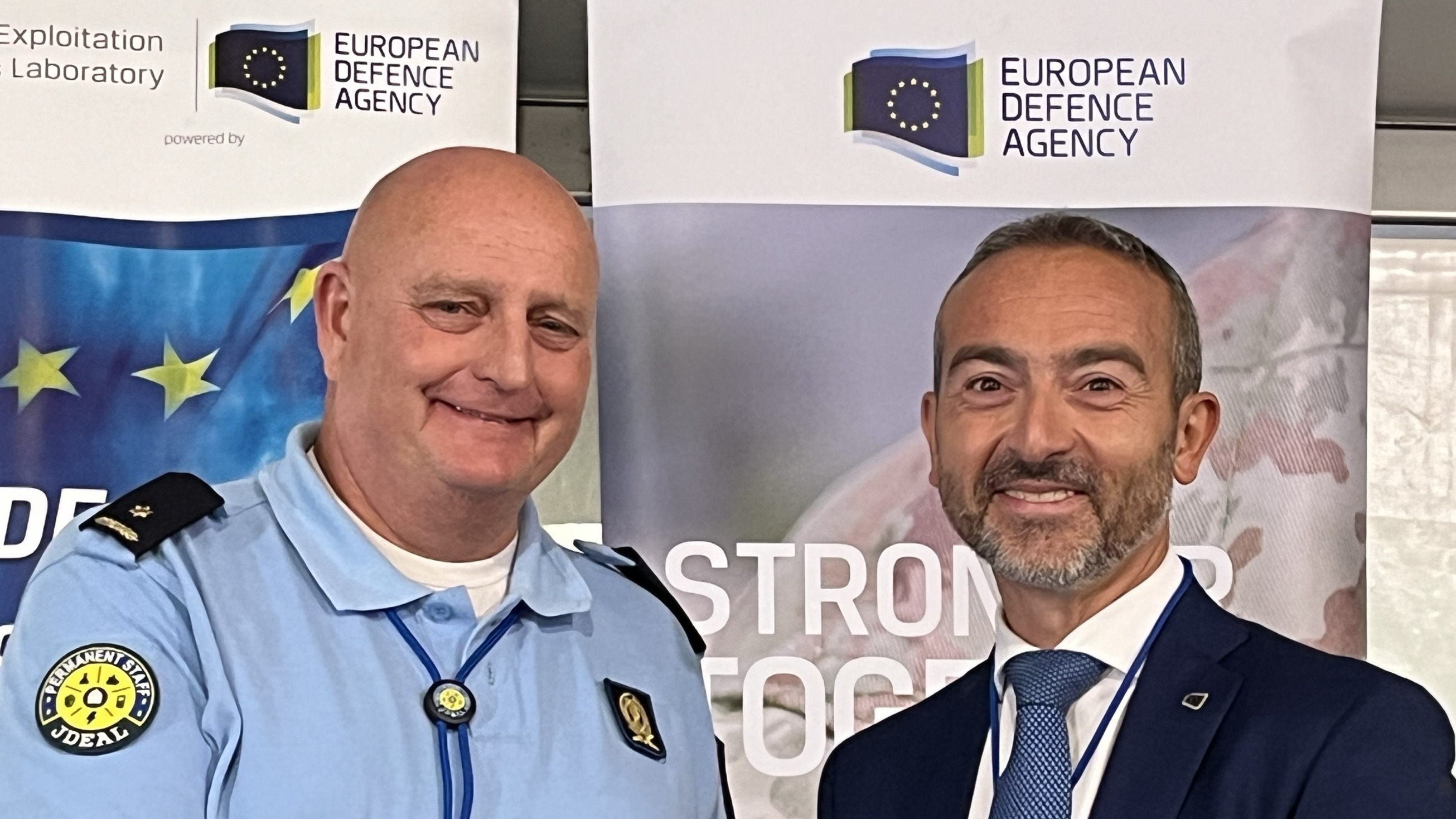A deployable military facility to help counter improvised explosive devices (IEDs) is celebrating 10 years of operations in the Netherlands. First conceived during multinational land operations in Afghanistan, the Joint Deployable Exploitation and Analysis Laboratory (JDEAL) has trained more than 900 personnel from 14 European Union Member States. Now, the facility and its expertise could potentially be used in a much broader context, including Unmanned aerial vehicles (UAV) or Unmanned underwater vehicles (UUV), in Ukraine or for any potential threat in Europe.
JDEAL, which has been managed by the European Defence Agency (EDA) and lead nation the Netherlands, also brings together Austria, Belgium, Finland, France, Germany, Hungary, Italy, Luxembourg, Portugal, Romania, Spain, and Sweden – as well as Norway. The United States, the United Kingdom, and the NATO Counter-IED Centre of Excellence have also sent observers over the project’s lifetime. JDEAL began operating in mid-2014.

JDEAL, which built on EDA’s temporary lab deployed to Kabul in September 2011, comprises a permanent joint training facility in the Dutch town of Soesterberg, and two deployable laboratories equipped with tools such as a Rapid DNA machine. They can be deployed on five days’ notice, either as a container or a tent, depending on conditions in the field.
The Netherlands is now donating one of the deployable laboratories to Ukraine and will partly finance the cost of its replacement to ensure two laboratories for the Member States once again.

Fit for new threats
At a ceremony at JDEAL’s permanent technical exploitation training facility on 11 September 2024, Rear Admiral Ad van de Sande of the Royal Netherlands Navy said the project was a testament to what Member States can achieve together.
He urged countries to develop military capabilities and cooperation further to keep Europeans safe. “In the past 10 years, our geopolitical context has changed considerably. We have war in Europe. We are facing the most serious threats to global security in decades, and because of this, we are shifting from wars of choice to wars of necessity.”
He said the work of EDA was vital, citing the Agency’s work on the 2023 Capability Development Priorities (CDP). “Our transatlantic alliance is a cornerstone of European security. But Europe needs to take more responsibility. This means building credible deterrence and collective defence ... strengthening our position in NATO and fostering more European cooperation, with the help of the European Defence Agency,” van de Sande told the gathered military personnel and IED experts.
Paul Vos, Chairman of the JDEAL Management Committee, said the facility would need to keep innovating, and could be used to study aerial and possibly maritime IEDs to help protect against hostile drones. “Through JDEAL, we can potentially study radio techniques and frequencies used in UAVs, the types of explosives they carry, their chemical substances – and which country they come from.”
Giuseppe Dello Stritto, EDA’s Head of Unit for Land and Logistics at the Agency’s Capability Directorate, said that JDEAL needs to stay ahead of the challenges in a fast-changing operational environment. “Counter-IED has evolved as a threat, and our military capabilities and postures need to evolve as well. So JDEAL may need to be adapted.”

More information
CDP: qu-03-23-421-en-n-web.pdf (europa.eu)
JDEAL: Activities Search (europa.eu)
JDEAL in 2014: New facility to help in fight against IEDs opens in the Netherlands (europa.eu)